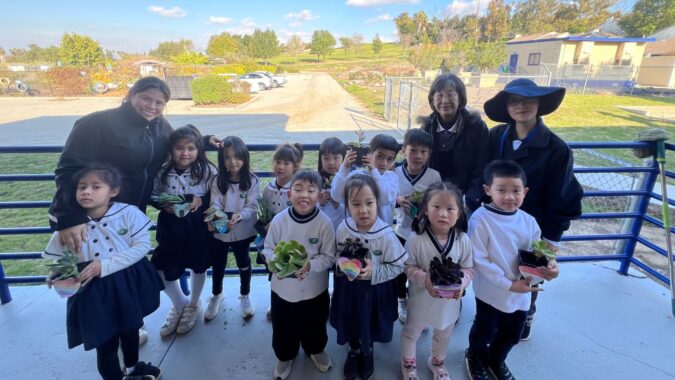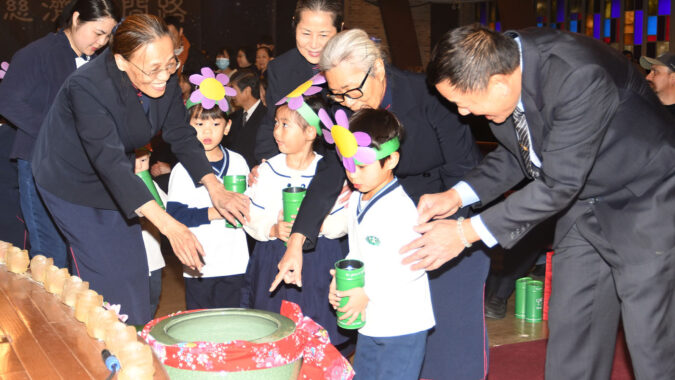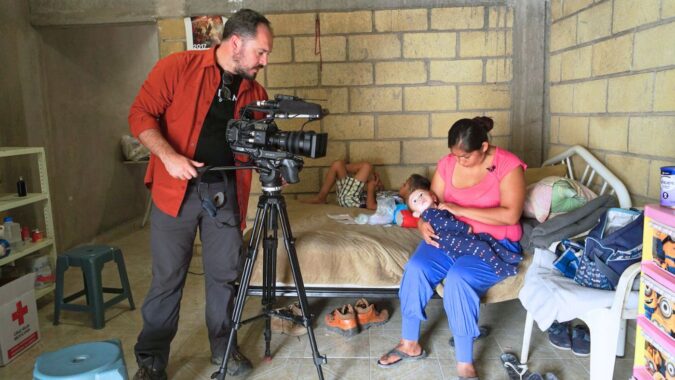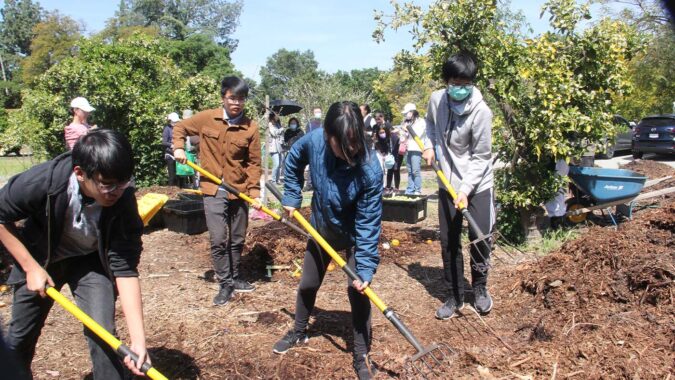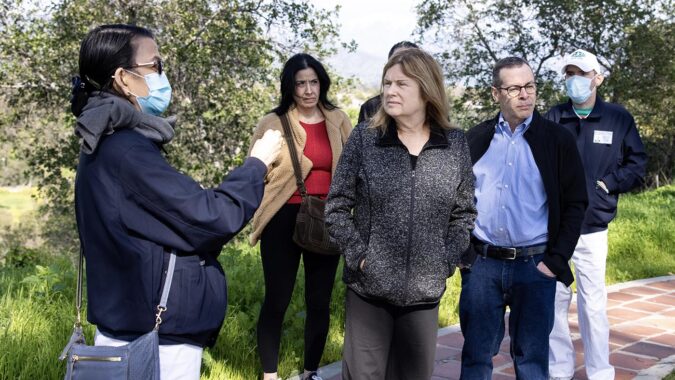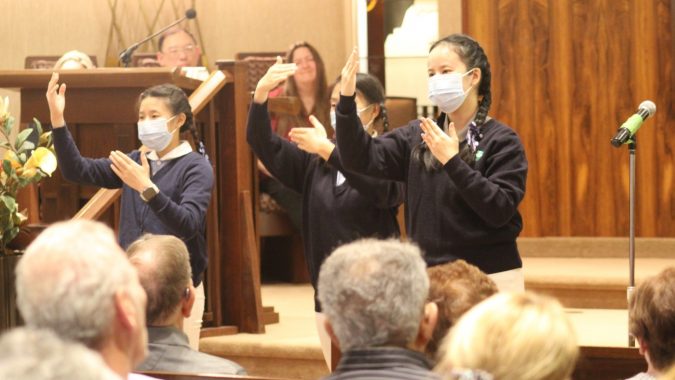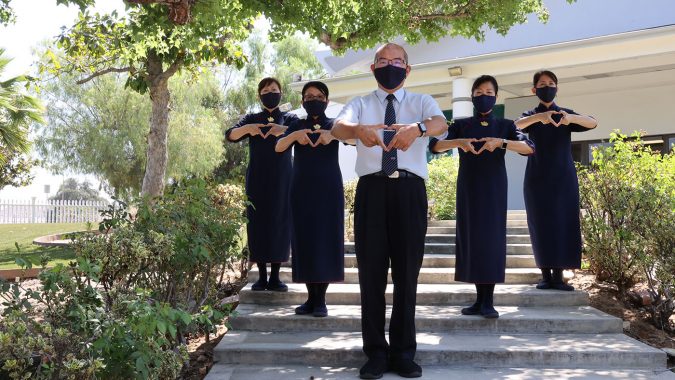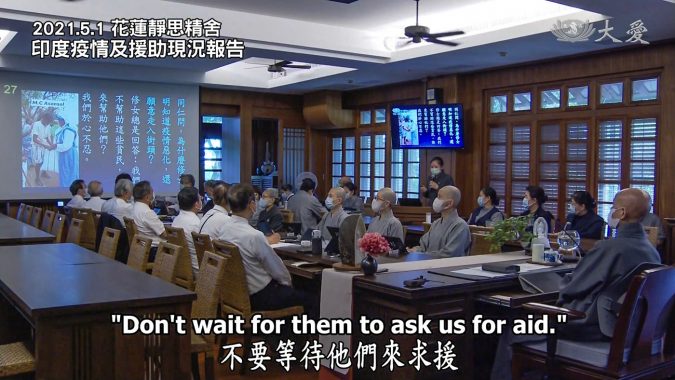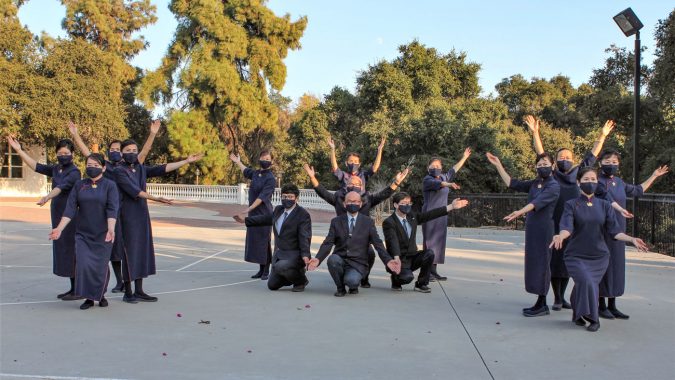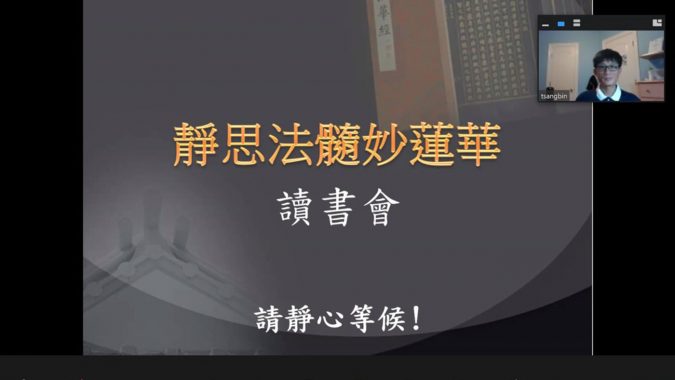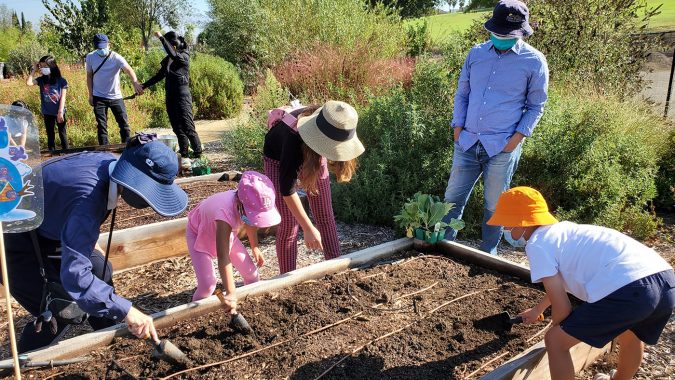
Story Time
There is a proverb which states, “All things, good or evil, are created by one’s mind.” In Buddhism, the importance of the mind and our intentions are paramount, and are likewise at the heart of the Buddhist Tzu Chi Foundation’s conception.
In 1966, Dharma Master Cheng Yen, the founder of the Buddhist Tzu Chi Foundation, and her followers were living in Hualien. They lived humbly by sewing baby shoes, knitting sweaters, and making other items for sale. In her heart, however, Dharma Master Cheng Yen yearned to be of greater service to others.
It was the plight of an aboriginal woman suffering from labor complications that ultimately was the catalyst towards fulfilling that promise.
An expectant mother’s family had carried her for miles to reach the hospital from their remote mountain village, only to be turned away when they got there. They didn’t have enough money for the hospital’s security deposit. Master Cheng Yen had been visiting a patient at the hospital that day when she witnessed the pool of blood that remained after the woman had been taken away.
She was utterly heartbroken.
But what could an impoverished monastic do to help? Then, some practical math kicked in. If she and the three nuns and two lay followers who’d lived with her each made and sold an extra pair of shoes a day, and the 30 housewives who listened to her teachings gave NT 50 cents (2 U.S. cents) daily from their grocery fund, in one year, they could raise the amount of money someone like that woman had needed for treatment. She knew that with a concerted effort over time, there was hope.
Special piggy banks were quickly fashioned out of bamboo, and the housewives began to collect a few cents from their grocery money each day. When asked why they couldn’t just give an equivalent sum once per month, Master Cheng Yen refused. The reasoning behind this was because awakening kindness within one’s heart each day is of equal importance to the amount of money donated:
Before leaving the house, you have already committed to helping other people. Saving fifty cents each day raises a thrifty and loving heart. When these feelings are put in the bamboo bank, the effect is tremendous.
As the thirty housewives went grocery shopping and saved daily, they also told others about what they were doing. It wasn’t long before word about Master Cheng Yen’s mission of charity spread, and others were inspired to give as well. The Buddhist Tzu Chi Foundation was established on May 14, 1966, just three months after Master Cheng Yen had witnessed that pool of blood on the hospital floor.
Tzu Chi went on to raise enough money to build a hospital that offered free healthcare in Hualien.
That was only the beginning, however.
Tzu Chi’s footprint of humanitarianism has now reached five continents, assisting 100 countries and territories globally. The bamboo bank’s humble origin proves that no good deed is too small when done with love and pure intentions. When many people join hands to uphold a good cause, it can create infinite ripples of good across the world. Master Cheng Yen’s teachings reveal how, in life, we can’t ignore a single act of kindness, because each contributes to the force of compassion in the world.
Bamboo banks are still used by Tzu Chi until this day to collect donations on behalf of those in need.
Food for Thought
How can one transform their anger into gratitude?
Sometimes, interacting with people and addressing difficult matters in life brings forth frustrations. When this happens, some hold onto their anger and frustration. This need to resolve matters is thus neglected, and the anger and frustration only continues to build until it develops into a knot in our heart. Essentially, it forms a spiritual illness.
Even if one does not display their feelings outwardly to the person they’re angry with, this resentment is transformed into a seed in our consciousness. When they encounter the same people again in their future life, they will instinctively dislike them. If in our future lives we are not born into the karmic conditions which allow us to cultivate our wisdom and offer us the chance to dissolve these negative emotions, we will very likely form bad karma and bad affinities with these people. This perpetuates a vicious cycle.
Since the goal of our cultivation is to free ourselves from our afflictions, we should rid ourselves of them completely by letting go of our anger and resentment.
Since the goal of our cultivation is to free ourselves from our afflictions, we should rid ourselves of them completely by letting go of our anger and resentment.
So, how do we form good affinities with people?
We need to cultivate gratitude toward people at all times, even to those who create frustrations in our lives. Indeed, even if we recognize that a person is deliberately causing us pain, we must still be grateful, for they allow us to nurture a heart of gratitude, and develop wisdom in overcoming obstacles. It is through this that we ascertain how strong our tolerance and forbearance truly are.
If we can learn to nurture a heart of gratitude, then no matter what kinds of people and situations we encounter, we will consider everyone and everything with love instead of anger and frustration. This transforms one’s personality, and fosters a broad and understanding heart.
Events and Happenings
Gratitude, Respect, and Love: Tzu Chi NY Charity Concert
Celebrate 30 years of compassion and relief with Tzu Chi New York! This special charity concert will feature performances from the talented Taiwanese singers Chyi Yu (齊豫), Haoran Yu (余皓然), and Roger Wang (王中平), along with a dance performance featuring Taiwanese dancer Billy Chang (張逸軍) and a sign language performance by Tzu Chi volunteers.
Date: November 30th, 2019
Time: 6:00 PM
Location: Kupferberg Center for the Arts at Queens College
153-49 Reeves Ave. Flushing, NY 11367

